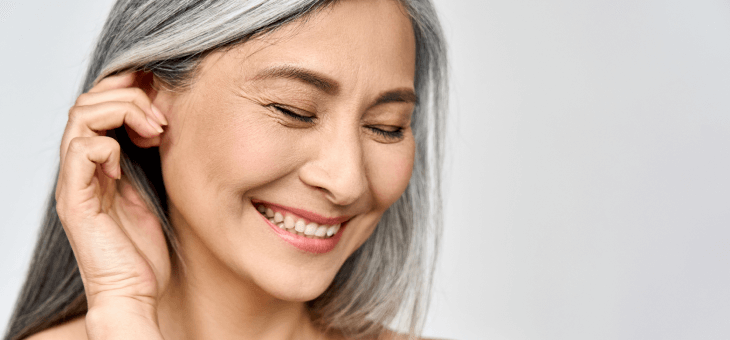Therapist and best-selling author, Marisa Peer, one of the world’s most requested wellbeing speakers, is often asked to talk about why women struggle to climax and how to achieve a super-orgasm. Here, she shares why orgasms are so powerful, their numerous health benefits and why she thinks vibrators should be prescribed to women.
Deeper sleep
Research shows that seven hours of sleep a night is critical to your physical and mental wellbeing. With busy lifestyles, and many of us struggling to switch off at the end of the day, orgasms are a great way to unwind at bedtime. Climaxing releases the hormone prolactin, which makes you feel more relaxed and helps you benefit from deeper, more consistent, sleep patterns.
Read: Study pinpoints the ideal amount of sleep as you age
Pain relief
The body’s natural painkillers – endorphins, and another of the miracle hormones oxytocin – are released at orgasm to help us better deal with the normal aches and pains of the day. These act as analgesics and almost double women’s pain tolerance, providing relief for everything from period pains to rheumatoid arthritis.
More muscle
Women release small amounts of testosterone at orgasm, which helps muscle retention. This is important for women because you tend to lose muscle mass as you age. Testosterone also helps you to stay at your ideal weight.
Improved complexion
Better than any expensive face cream, orgasms help to keep the signs of ageing at bay. An orgasm signals that a woman is fertile, irrespective of age, so it releases beneficial hormones including oestrogen and collagen to support the process. The result is younger, glowing skin as well as being a great way to keep spots at bay.
Plumper lips
Forget Botox or fillers – orgasms increase a woman’s blood supply and, as a result, the lips can appear naturally fuller.
Healthier hair
Increased blood flow to the scalp also helps boost hair growth and results in shinier, healthy looking hair.
Read: New study busts myth about the female orgasm
As good as a massage
Along with feeling great, another benefit of massage is to kickstart your circulation. An orgasm does both. Improving circulation may also help reduce the appearance of cellulite.
Improved immune system
Want to give your immune system a boost? Orgasms are the natural way to achieve this because they increase leukocytes that help lower inflammation and boost natural killer cells. Research has found regular orgasms can also help to keep heart disease, diabetes, migraines, stomach ulcers and even coughs and colds at bay while promoting bone health and tissue repair.
Mental health
Orgasms flood the body with oxytocin, the feel-good hormone, which is a veritable pharmacy of positive wellbeing. It can help to lift a low mood and the afterglow stays with you for up to 48 hours. Oxytocin is also great for battling stress. Having an orgasm boosts body confidence, as the pleasurable sensation makes you appreciate yourself and feel more comfortable in your own skin.
Read: Can orgasms extend your life?
Commenting on the importance of orgasms, Ms Peer said:
“The benefits of orgasms are so numerous that every woman should be able to access them on a regular basis, whether or not they are in a relationship and whatever their age. Buying sex aids can feel uncomfortable for some groups of women but if they were provided under medical care, this would normalise them and empower women to feel confident about self-pleasuring too. Rather than being perceived as just a sex toy, they should sit alongside taking vitamins or brushing our teeth as part of our daily routine.”
Marisa Peer is a world-renowned therapist and best-selling author. She developed a therapeutic method called Rapid Transformational Therapy (RTT) that can help support people’s mental wellbeing more quickly than some traditional approaches.
She is the author of six bestselling books. Her latest book Tell Yourself a Better Lie: Use the Power of Rapid Transformational Therapy to Edit Your Story and Rewrite Your Life was published earlier this year.
Do you think vibrators should be prescribed? Let us know in the comments section below.
Disclaimer: This article contains general information about health issues and is not advice. For health advice, consult your medical practitioner.

